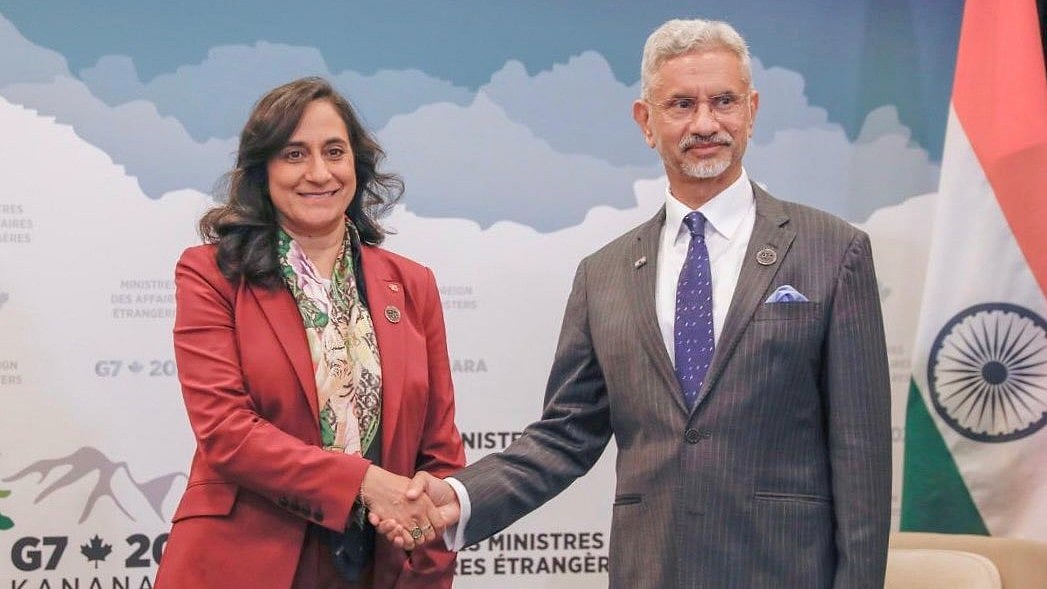World
G7 foreign ministers meet in Canada amid rising tensions with US
The summit is expected to focus on critical issues including on Middle East peace, Russia-Ukraine conflict, defence spending, trade disputes, energy, and critical minerals

Foreign ministers from the Group of Seven (G7) industrialised democracies have convened in southern Ontario for a two-day meeting as tensions grow between the United States and its traditional allies over defence spending, trade disputes, and President Donald Trump’s plans for a Gaza ceasefire and the Russia-Ukraine conflict.
Canadian Foreign Minister Anita Anand, who is hosting the summit, said in an interview with The Associated Press that “the relationship has to continue across a range of issues” despite ongoing trade pressures. The summit includes G7 counterparts from the United States, Britain, France, Germany, Italy, and Japan, as well as invited ministers from Australia, Brazil, India, Saudi Arabia, Mexico, South Korea, South Africa, and Ukraine.
Ms. Anand said discussions on Tuesday evening focused on advancing long-term peace and stability in the Middle East. “The peace plan must be upheld,” she said, emphasising Canada’s role in facilitating dialogue among G7 nations.
Early on Wednesday, the diplomats were scheduled to meet with Ukraine’s Foreign Minister. Ahead of the session, Britain announced it would provide £13 million ($17 million) to help repair Ukraine’s energy infrastructure, including power, heating, and water systems, to support civilians during the approaching winter. UK Foreign Secretary Yvette Cooper said the funding aims to counter Russian efforts to plunge Ukraine into darkness and cold.
The G7 summit comes amid strained Canada-US relations, primarily over trade disputes. Earlier this year, President Trump imposed tariffs on Canadian imports, and disagreements flared following an Ontario government advertisement that Trump criticised. Canadian Prime Minister Mark Carney has since apologised, signalling readiness to resume trade talks.
Published: undefined
Defence spending remains another contentious issue. All G7 members except Japan are NATO members, and Trump has called on them to allocate 5 per cent of their GDP to defence. Canada and Italy are currently furthest from meeting this target.
Ms Anand noted that Canada plans to reach 2 per cent of GDP in defence spending this year, aiming for 5 per cent by 2035, with a recent budget allocating C$80 billion (US$57 billion) to defence.
G7 members have also expressed differing positions on global conflicts. Britain, Canada, and France have announced intentions to recognise a Palestinian state regardless of the Gaza conflict’s resolution, while most G7 countries have taken a firmer stance on Russia than the U.S. administration has.
During the summit, Secretary of State Marco Rubio is expected to focus on initiatives including halting hostilities in Ukraine and Gaza, maritime security, humanitarian crises in Haiti and Sudan, supply chain resilience, and critical minerals. Canada, for its part, is prioritising the war in Ukraine, Arctic security, and stability in Haiti.
The meeting also includes discussions on energy and critical minerals, essential for industries ranging from smartphones to defence, with Canada highlighting its reserves of 34 critical minerals and metals of interest to the U.S. Pentagon for national security purposes.
Ms. Anand stressed the importance of maintaining dialogue across multiple issues, noting that while trade remains complex, it is just one of many areas where cooperation between the US and Canada, and with other G7 partners is essential.
The Niagara-on-the-Lake summit underscores the challenges facing traditional allies as they navigate disputes over trade, defence, and global security while attempting to coordinate on pressing international conflicts.
With Agency Inputs
Published: undefined
Follow us on: Facebook, Twitter, Google News, Instagram
Join our official telegram channel (@nationalherald) and stay updated with the latest headlines
Published: undefined